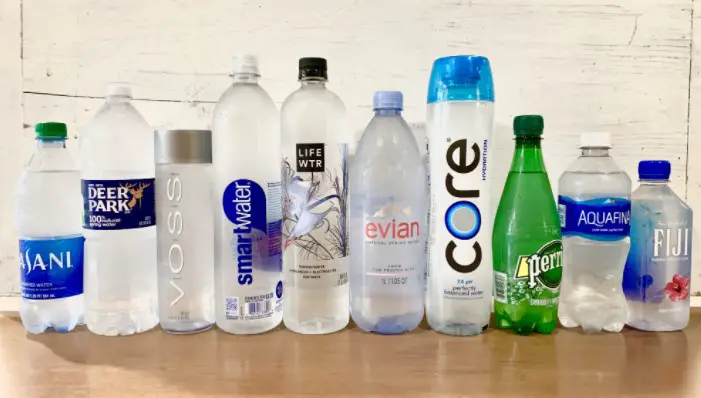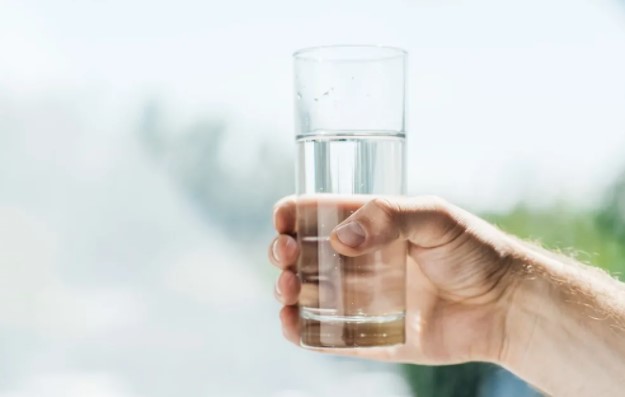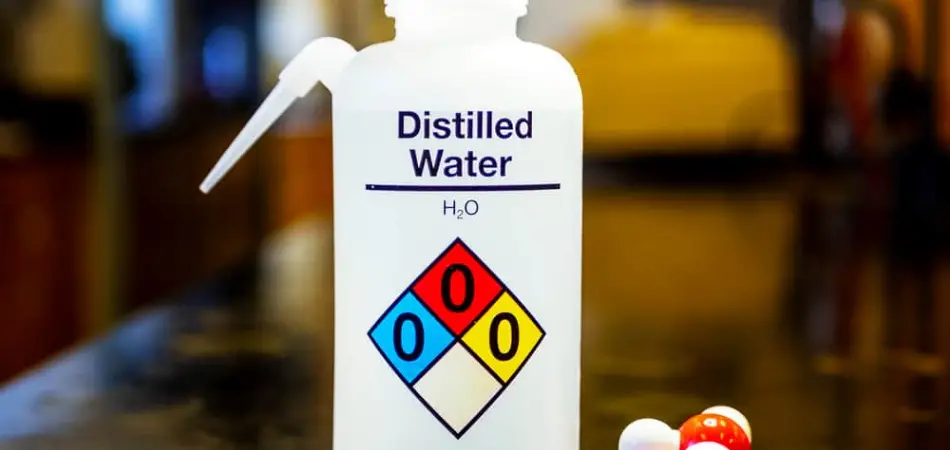Water is generally not friendly with metals. It causes rust to occur, especially in the presence of atmospheric oxygen, but does distilled water cause rust? While it is common knowledge that one needs to keep their metallic objects from water and oxygen, is there a chance that distilled water may have a way of causing harm to metals?
No, distilled water does not cause rust. Rusting is the process of an iron base metal combining with oxygen to form iron oxide. The amount of oxygen in a system must be high for significant oxidation to take place, and distilled water does not contain dissolved oxygen.
In this article, we will answer the question, “does distilled water cause rust?” You’ll also have a look at the properties of distilled water and how they contribute or prevent, whichever the case may be, rust or corrosion in metals
Contents
What is Distilled Water?
Distilled water is water gotten from vaporization and condensation. Water is allowed to boil till it goes into its gaseous state, in a process called vaporization. The steam – a gaseous form of water – is trapped and cools to form water again, in a process called condensation, which is then collected as a pure form of water without any impurity. The solvents that may have been contained in the water are left behind in the condenser and the product is pure, unadulterated water.

Ideally, distilled water contains only oxygen and hydrogen atoms, with all minerals and ions that may cause harm to metals left behind during condensation. It is, therefore, safe to say that distilled water contains nothing that can cause rust to metals. However, one can ask, what about the oxygen in water, and the fact that water is water?
Although distilled water is pure, it only remains pure as long no other atom of an element is allowed into the compound. Oxygen atoms, free in the atmosphere, will readily dissolve in water and remain free, making them impure.
Is Distilled Water Corrosive?
Well, water is a combination of two hydrogen atoms and one oxygen atom, covalently bonded together. In impure water, minerals such as iron and calcium are commonly found; however, you can’t find these minerals in distilled water. The balanced pH state, 7, of distilled water makes it the purest form of water. However, to understand what causes corrosion means to know what contributes to it.

Corrosion or rust does not take place unless three things are present – a reactive metal, oxygen, and water – the reactive metal may be ferrous, causing rust to be the product of the reaction involving these reagents, or non-ferrous, causing corrosion of a different physical property, as in copper.
Distilled water is not corrosive on its own, as it cannot cause any metal to rust or corrode because firstly, it does not contain any free oxygen to cause a reaction with the metal. That means, if you submerge a piece of metal, ferrous or non-ferrous, in distilled water, it’ll not rust. However, if you expose the nail to both atmospheric oxygen and distilled water, it’ll rust or corrode.
To answer the question, distilled water is not corrosive because it is pure and without any dissolved mineral or free oxygen atom.
Does Distilled Water Cause Rust?
The answer to this is double-sided, so, yes and no.
Yes, distilled water contributes to rust as it is still water and can help to kickstart the process of rust and corrosion. However, the answer can be no because distilled water cannot cause rust on its own. It needs to be in a reaction that involves atmospheric oxygen for rust to take place.

Since rust, ferrous oxide, is the product of the reaction that involves iron, oxygen, and water, distilled water cannot singularly make metals rust. However, distilled water is so pure that atmospheric oxygen readily dissolves in it and remains present as a free oxygen atom. In this case, if a metal is submerged in such distilled water, it’ll rust simply because there’s a free oxygen atom in the water, iron in the metal, and water.
How Does Distilled Water Cause Rust?
Distilled water does not cause rust, it contributes to rust. In the absence of atmospheric oxygen or any free oxygen atom, metals will not rust or corrode. However, distilled water is susceptible to allowing free oxygen atoms into its compound, and when this happens, the only reagent left for rust to take place is iron.
Therefore, distilled water causes rust when it, in combination with atmospheric oxygen or free oxygen atoms, reacts with iron as contained in ferrous metals. Although distilled water is pure, it is still water, one of the reagents necessary for rust and corrosion to take place.
The impurities removed from distilled water do not make it a chemically unreactive compound, it only makes it pure and safer to drink, and those impurities are not the cause of corrosion or rust, water molecules are one of the factors that contribute to rust and corrosion.
Final Thought
Distilled water is the purest form of water and it ideally contains only water molecules – two hydrogen atoms and one oxygen atom. It has a pH of 7 and is ordinarily not corrosive. However, free oxygen atoms – one of the reagents necessary for corrosion can dissolve in distilled water, and when an iron atom is introduced, rust begins.
Therefore, yes, distilled water contributes to corrosion. And no, it does not cause corrosion and rust as it cannot act alone.

